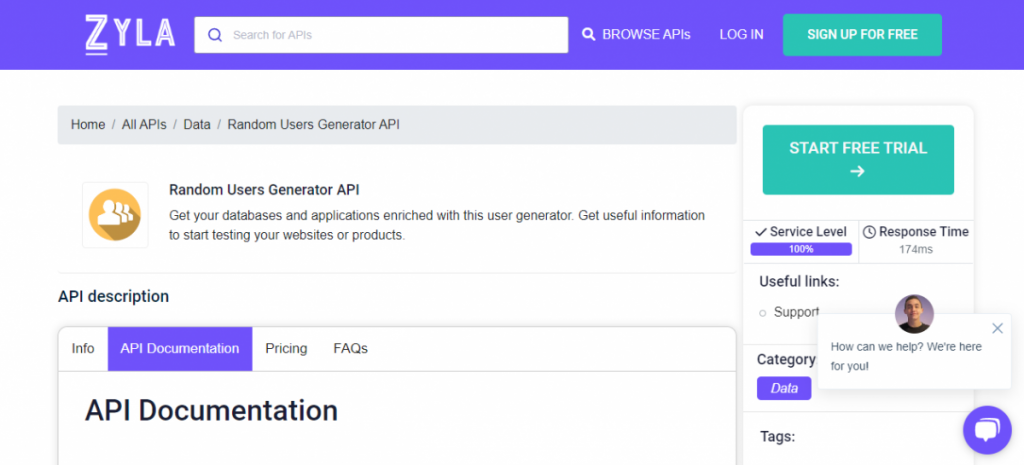Generating users with an API holds immense importance in the realm of software development and user experience optimization.
By enabling developers to generate synthetic user profiles, a Random Users Generator API facilitates realistic user simulations, scalability testing, personalization, data-driven decision making, and agile development.
The benefits of using this API extend to a wide range of stakeholders, including businesses, developers, and end-users.
Who Benefits From Using The Random Users Generator API?
Businesses: Using the Random Users Generator API provides businesses with invaluable insights and advantages. By simulating realistic user profiles, businesses can thoroughly test their applications and platforms under various scenarios, identifying issues, improving usability, and optimizing user experiences. The scalability testing feature allows businesses to assess performance under heavy loads, ensuring smooth operation and customer satisfaction during peak usage periods. Moreover, personalization options enable businesses to analyze the impact of tailored experiences on user engagement, conversion rates, and long-term customer loyalty.
Developers: For developers, the User Generator API streamlines development and testing processes. By seamlessly integrating into existing workflows and automated testing frameworks, this API enables agile development practices. Developers can quickly create and test user scenarios, iterate rapidly, and identify and fix bugs efficiently.
Additionally, the User Generator API provides developers with valuable data on user behavior, preferences, and interactions, empowering them to make informed decisions and optimize the user experience.
End-Users: End-users also benefit from the use of the User Generator API, albeit indirectly. The API enables businesses to deliver applications and platforms with improved performance, usability, and personalization. By simulating realistic user profiles, businesses can optimize user experiences, leading to higher customer satisfaction.
This API will dynamically generate user information for you to use in your different products. Do you have a website? A mobile app? Do you need to test your databases? Be ready to test them with a good amount of information.

Most Common Use Cases
Use this API to test your applications, websites or databases with real-world information.
Be ready to test interactive features:
Interactive features have become standard for today’s websites and apps. Interactive features like popups and content gates make it possible for companies to generate leads that increase sales and ad revenues.
You don’t want to send prototypes to clients until you have tested all of your product’s interactive components. Often, that means making sure fields can accept, predict, and sort text.
Test your databases:
With information structured like real-world info, you will be able to check your database’s scalability. Enrich your databases with information that looks and feels like the information a real user could give you.
How Can This API Help You?
The API will only receive the gender of the users that you want to get. Do you want Male users to test? Or maybe females? Declare the gender and receive useful information to try.
Get:
- First and Last Name.
- Location info, street, city, country, and postcode.
- Email and cellphone number.
- Login credentials. Username and Passwords.
- Date of birth.
- And also, get profile pictures!
How Does It Work?
1- Go to Random Users Generator API and simply click on the button “Start Free Trial” to start using the API.
2- After signing up in Zyla API Hub, you’ll be given your personal API key.
3- Employ the endpoint: enter a gender.
4- Press the CAPTCHA to check that you are not a robot, make the API call by pressing the button “test endpoint” and see the results on your screen.


